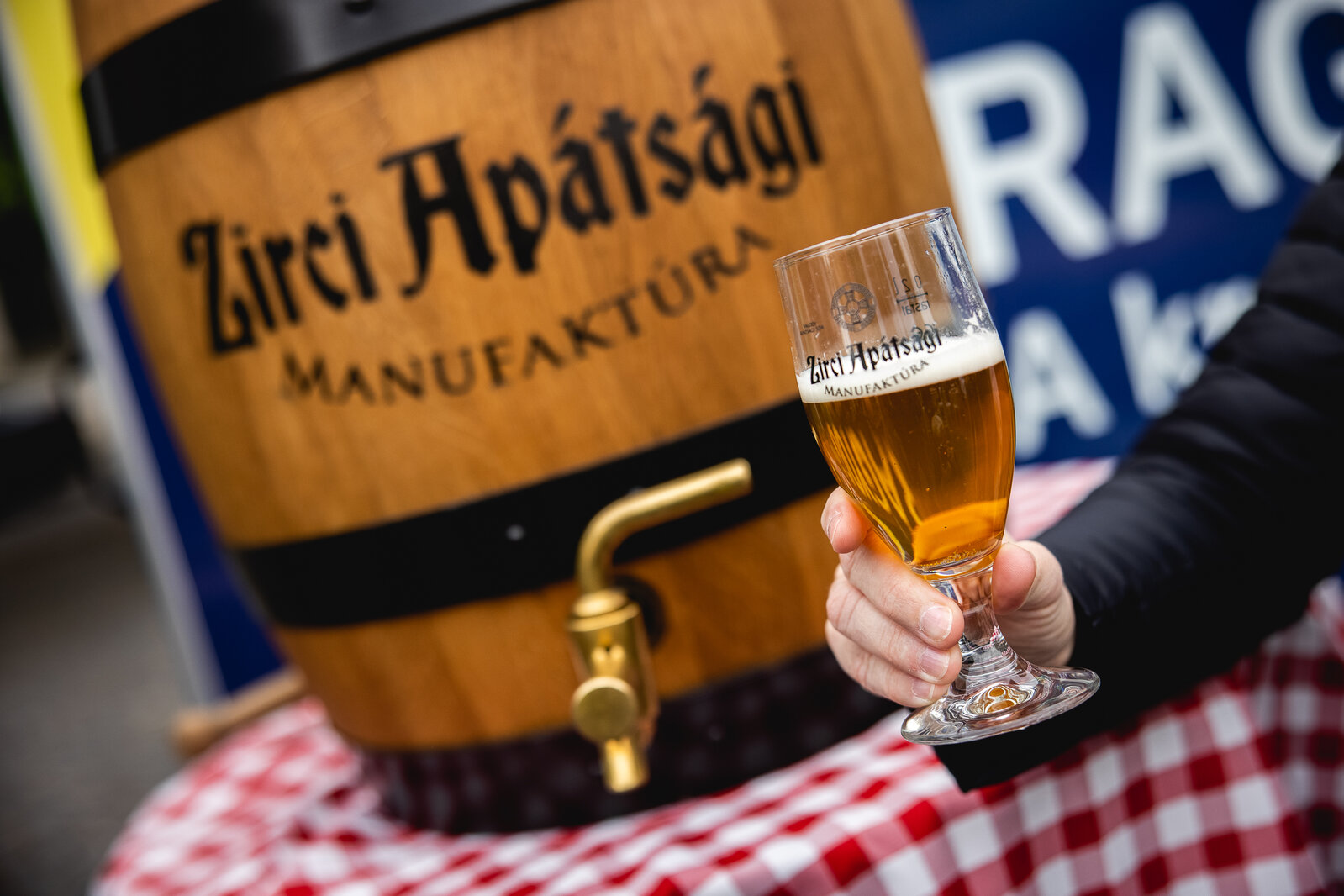A Monastic Tradition Revived in Beer
"Vidit et gustavit, quia bona esset". This Latin entry is found in a document dated in 1735 and preserved to this day in the archives of the Zirc Abbey. The paper it is written on is worn, but the meaning could not be more relevant today. We, of course, did not only receive a lesson in Latin from Father Bernát Marton, Prior of the Abbey of Zirc, who spent most of his life in Dallas, Texas but were introduced to the secret process of brewing Zirc Abbey beer.
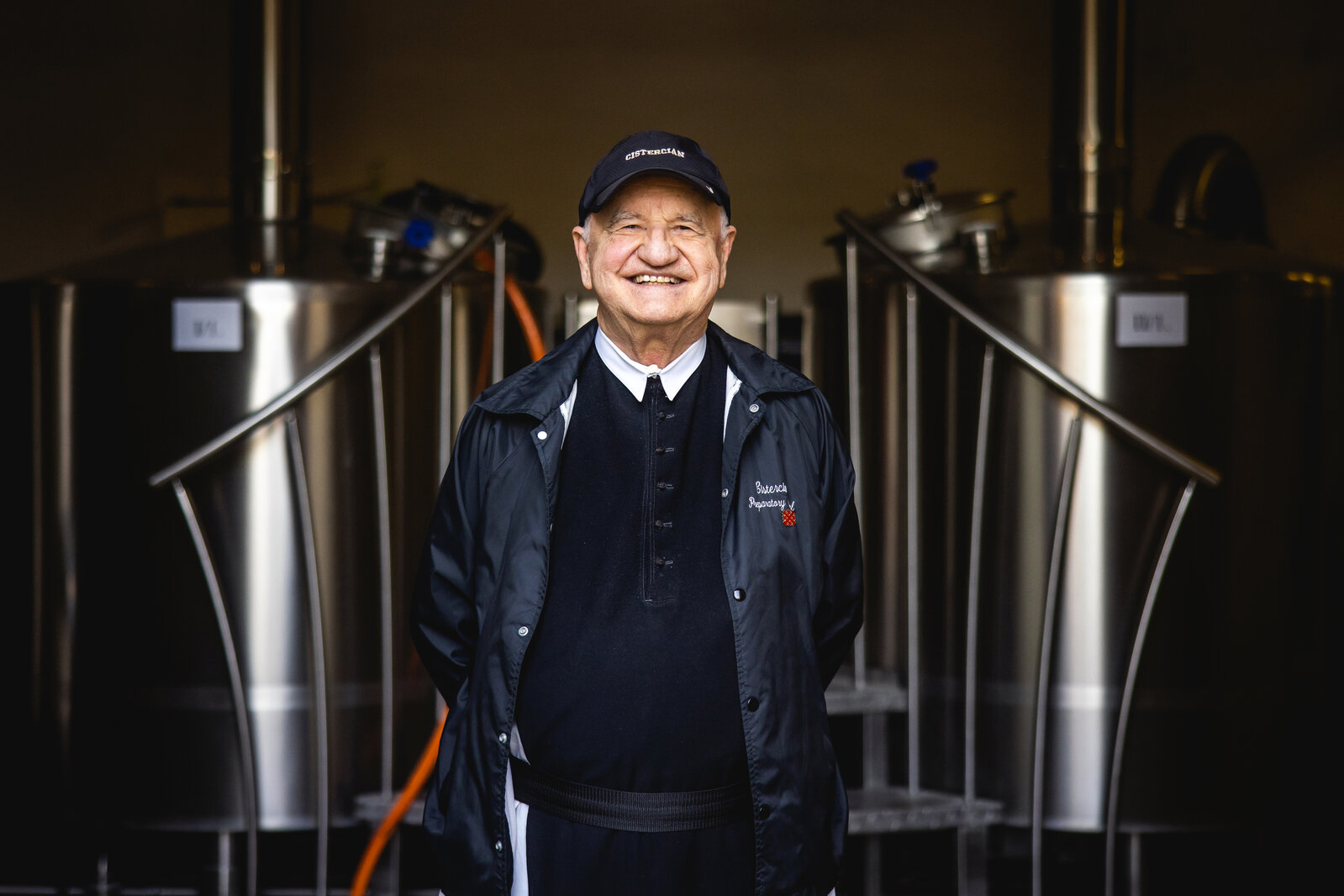
The life story of Father Bernát Marton does not paint the image one would associate with that of a Christian monk. He does not shuffle around with his head constantly bowed or eyes raised towards the heavens. "I prefer to walk with my eyes open to the world," says this 81-year-old monastic. He took his vows 60 years ago this year to devote his life to the service of God, according to the rules of the Cistercian order. It happened in Dallas, Texas, where he arrived alone at the tender age of 17. Before landing in the US, he says, he was lucky enough to visit France, Spain, and Switzerland by divine providence. He spent most of his life overseas, in one of the largest Texan city, where he taught school as a member of the Cistercian order. He was a passionate long-distance runner and, at one time, the spiritual leader of the Dallas Cowboys American football team. We met him in Zirc, in a quiet room in the abbey building, in a wing across from where the Zirc abbey brewery was in full operation as we spoke.
We shall come back to beermaking, but first, Father Bernát spoke at length of his often-adventurous life that eventually led him to Zirc. His homecoming was not a coincidence: he wanted to return to Hungary for many years. He first applied 25 years ago but his school assigned him a graduating class, then another, and another. Sixteen years passed before, in the end, the Abbot in Dallas personally asked him to fly home and help revitalise the Cistercian schools and institutions in Zirc and throughout Hungary.
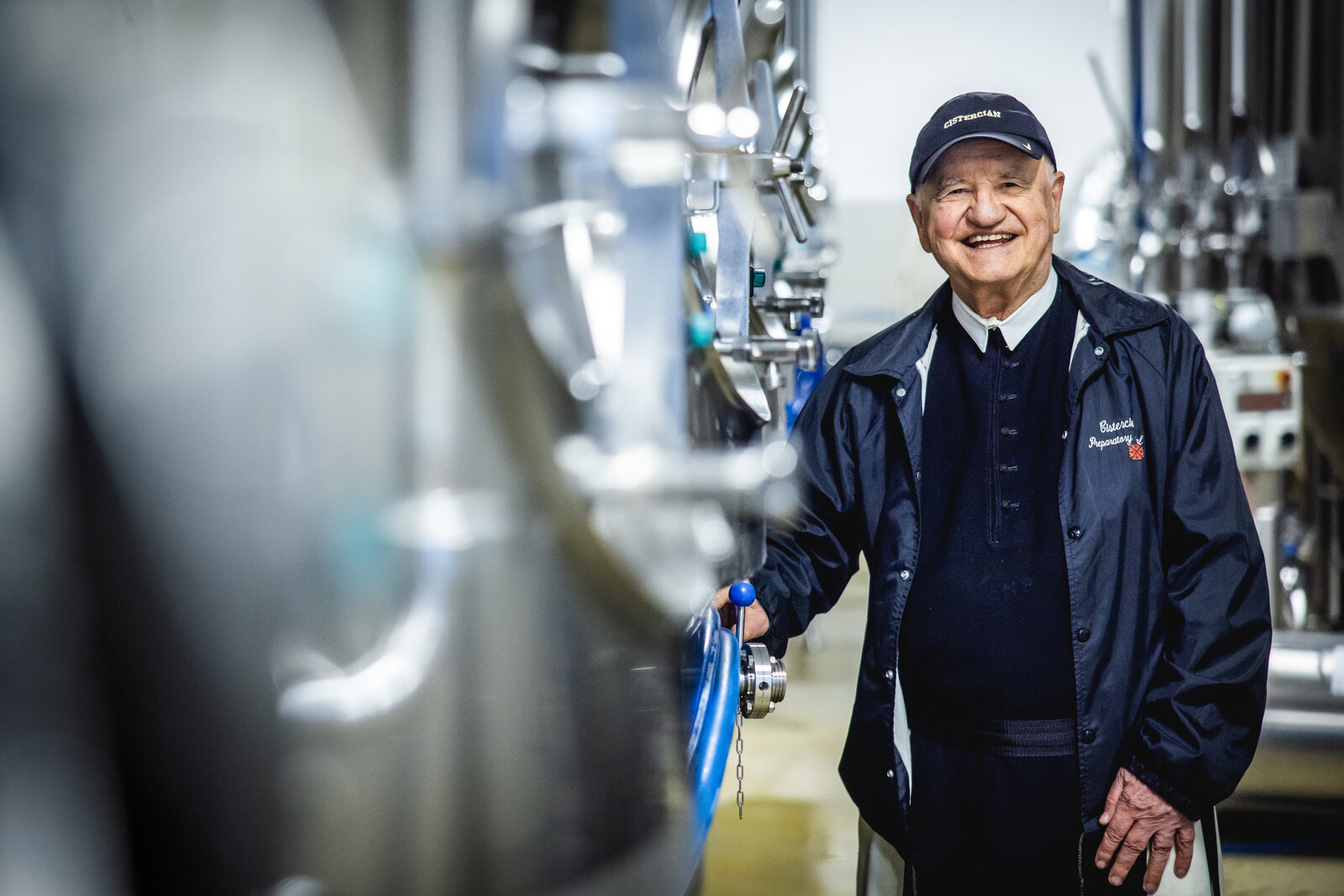
His help was needed indeed: there once were 250 Cistercians in Hungary, but today only 12 remain. He said, as he delved into Cistercian history, that the decades of socialism played the most significant role in destroying the order.
Cistercians are an offshoot of the Benedictine Order, founded in the 6th century by St Benedict. Centuries later, a reform led to the founding of the Cistercian order. Then, hundreds of years later, another reform branch, the Trappists, was formed. They followed a rigorous set of rules, but one must note that they brewed good beer in what is now Belgium." It is at this point that monasticism started to be linked to beermaking. Father Bernát's story soon reveals that founding the Zirc brewery’s is much more connected to Germans. "After the Turkish occupation, everything in Zirc was in ruins. German-speaking people from Silesia were the first to move to and breathe new life into the region. They were accompanied by some who brought along the tradition of beer brewing. The year was 1735, and they first drew beer in the abbey that year.
It is the year that beer is first mentioned in the archives. "Vidit et gustavit, quia bona esset." Father Bernát quickly translates the text: "He tasted it and saw that it was good."
Zirc beer became popular with the people at the time. More casks and pints followed the first brew in the brewery inside the abbey. Some names in the town still bear witness to those times. For example, the name of the lake ‘Seres tó’ [Beer Lake] near the monastery is a reference to the fact that a long time ago the lake’s waters were used to cool the brew.
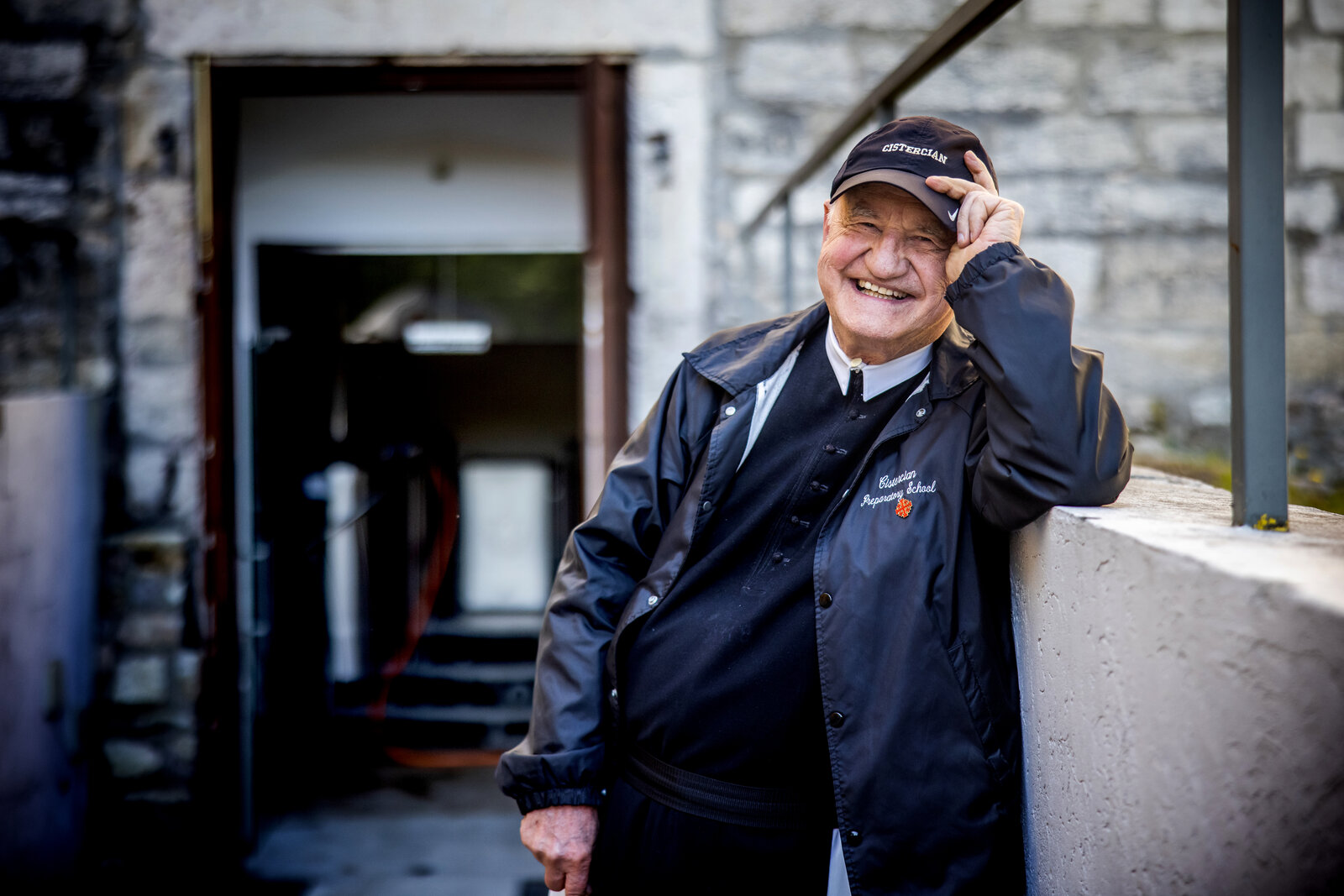
The passing of the years, and especially the historical vicissitudes, including the Habsburg rule and later the communist regime, rendered the work of Cistercians impossible, and brewing in Zirc ceased for decades.
It was not until 2015, after the millennium, that the tradition was revived. The abbot at the time decided to follow the example of his predecessors and brew beer within the abbey's walls. Father Bernát is quick to add that it is not an abbey beer in name only. They actually brew the ten different beers within the monastery's walls, in the basement of the building.
They include the classic pale ales, semi-brown, wheat, black, tripel, and lavender beer, one of the popular favourites. Father Bernát talks about the brewing process with the enthusiasm of someone who has done it all his life. However, he says that if someone had told him a few years ago that he would be in running a brewery today, he wouldn't have believed the prophecy. But here he is today, an octogenarian, still learning new things.
Things including that good beer begins with clean and high-quality water, something which is given in Zirc. Other ingredients require careful selection. For example, they often order the ingredients from Belgium, which the Zirc brew masters then transform into a refreshing alcoholic beverage.
The beauty of brewing is that no beers are ever the same. Each has a different flavour and aroma; you can pick out their special character. Just like the smell of perfume
- says Father Bernát, who adds that brewing beer requires such human qualities as patience, experimentation, and virtue; if one brew is a disaster, don't be discouraged, try again.
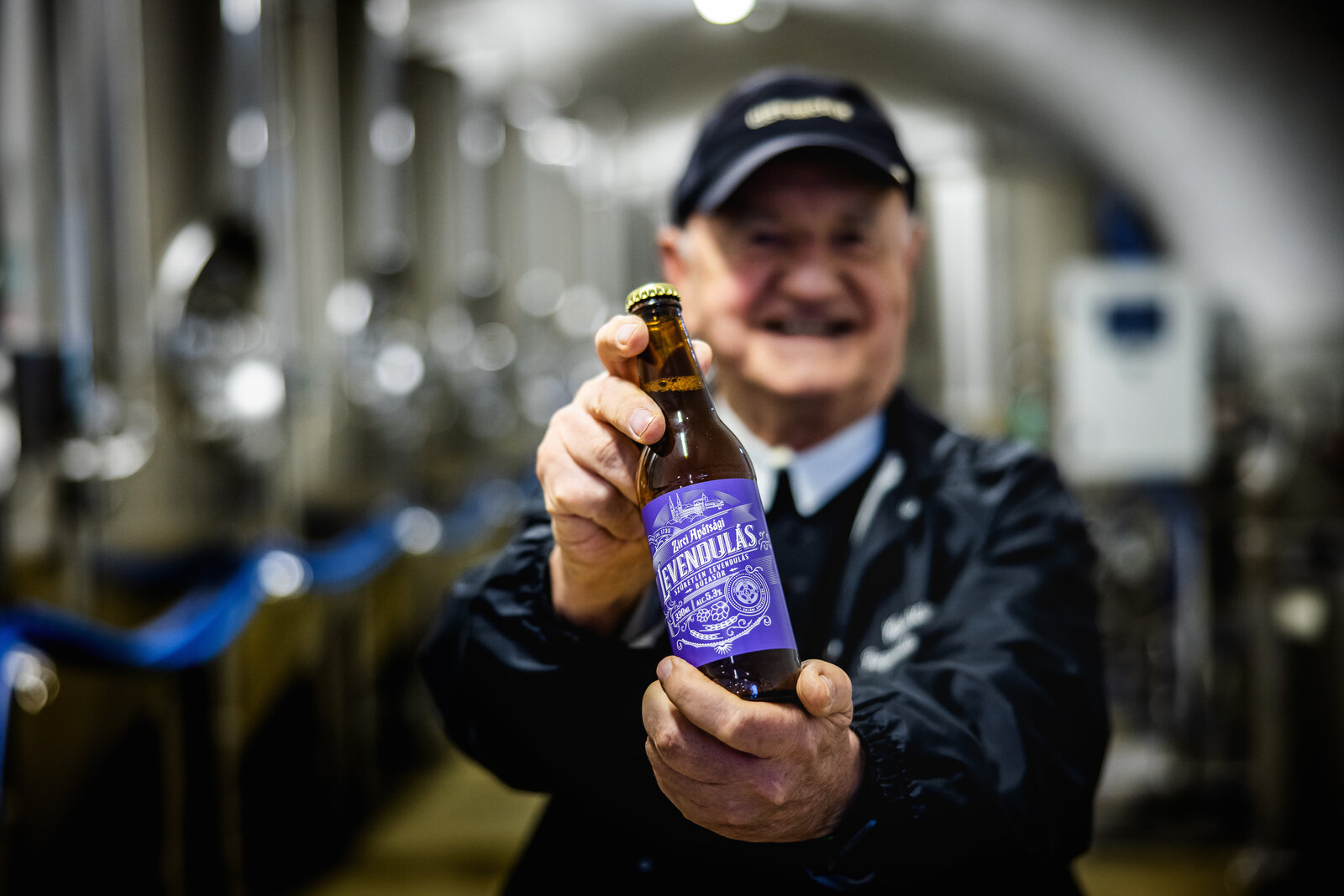
In addition, brewing is a communal experience in the abbey. When a new brew is being made, its scent precisely indicates what stage of production the drink is at from the aroma wafting in through the open windows. The smell even lures none-beer-drinkers down to the brewery, says the monk.
Sixteen 2,000-litre tanks are currently used in creating Zirc beers, a total of about 100,000 litres a year, with a new product or two coming out again this year. One of these, which was freshly brewed when we met, was particularly succulent, according to Father Bernát. He proclaimed, "I tasted it and saw that it was good." This product will soon attract even more attention and will go on its way to the delight of beer lovers, but that's a story for another day.
In the meantime, Father Bernát remains the careful overseer of the Zirc brewery, faithful to the rules of St. Benedict, setting examples, and living a life of moderation and cheerfulness.
